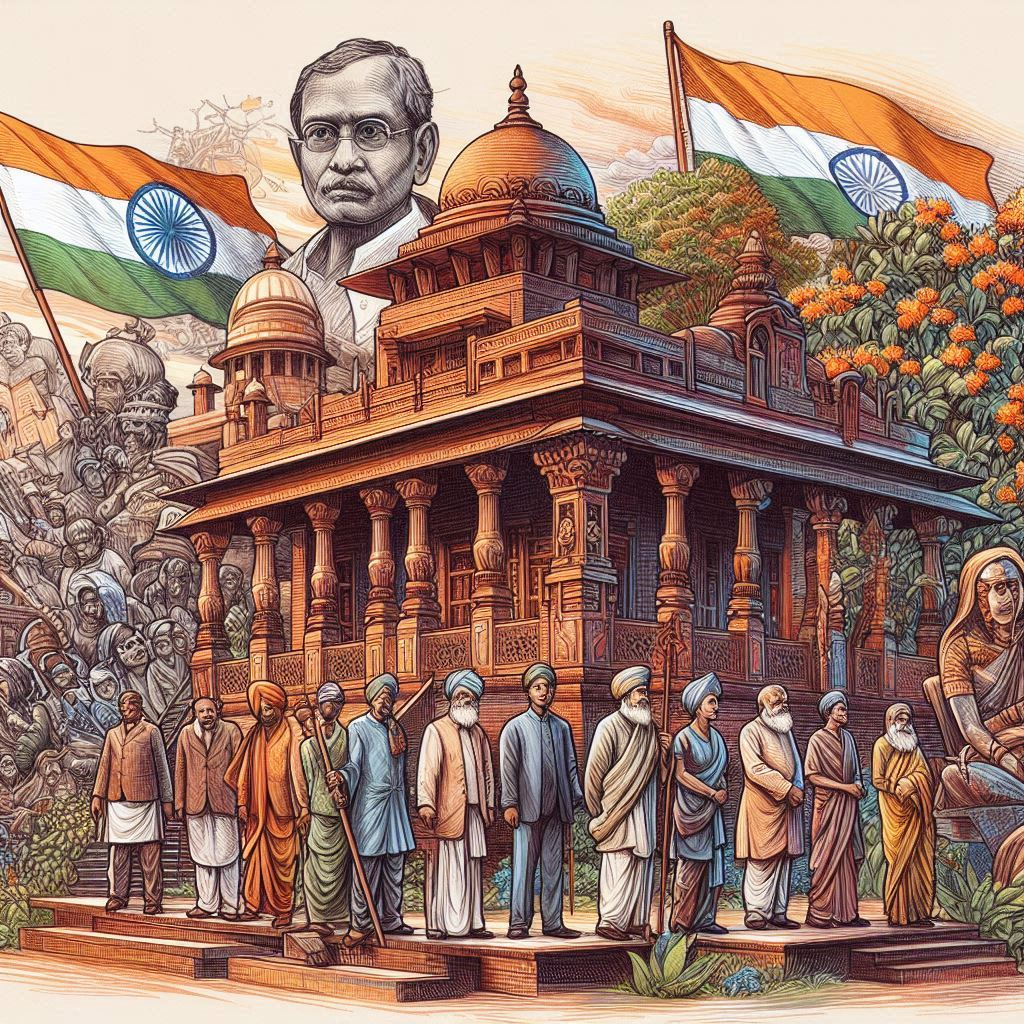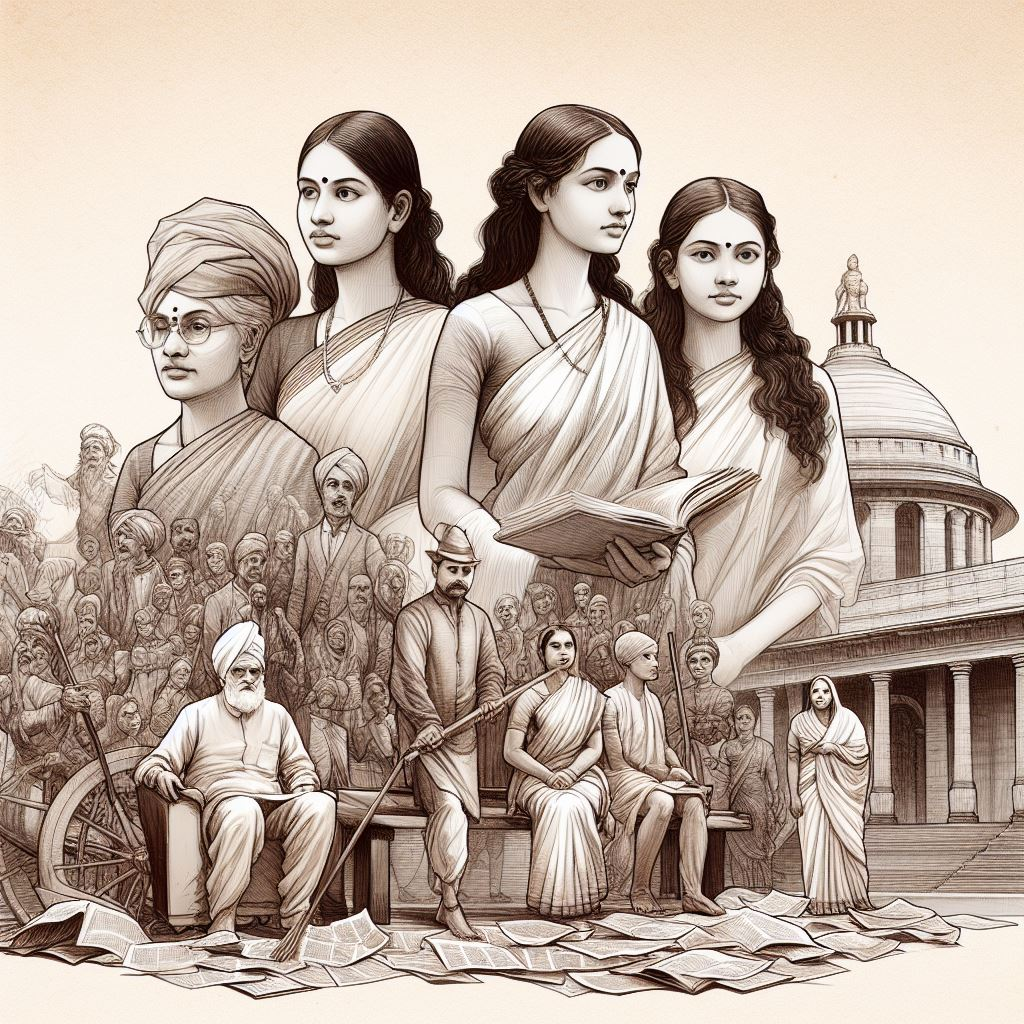The Fundamental Rights in the Constitution of India are essential freedoms and protections given to every citizen. These rights ensure that everyone can live with dignity, equality, and freedom. They include the right to free speech, the right to equality, and the right to practice any religion. These rights are important because they protect individuals from unfair treatment and help create a just and fair society. The framers of our Constitution included these rights to make sure that every person in India can enjoy a life of freedom and respect.
Fundamental rights are discussed in part III of the Indian constitution. It mentioned the following rights as fundamental that are enjoyed by the citizens of India.

Right to Equality
14. Equality before law
15. Prohibition of discrimination on grounds of religion, race, caste, sex or place of birth
16. Equality of opportunity in matters of public employment
17. Abolition of Untouchability
18. Abolition of titles
Right to Freedom
19. Protection of certain rights regarding: (a) to freedom of speech and expression; (b) to assemble peaceably and without arms; (c) to form associations or unions; (d) to move freely throughout the territory of India; (e) to reside and settle in any part of the territory of India; (f) to practise any profession, or to carry on any occupation, trade or business.
20. Protection in respect of conviction for offences
21. Protection of life and personal liberty
21A. Right to education
22. Protection against arrest and detention in certain case
Right against Exploitation
23. Prohibition of traffic in human beings and forced labour
24. Prohibition of employment of children in factories, etc
Right to Freedom of Religion
25. Freedom of conscience and free profession, practice and propagation of religion
26. Freedom to manage religious affairs
27. Freedom as to payment of taxes for promotion of any particular religion
28. Freedom as to attendance at religious instruction or religious worship in certain educational institutions
Cultural and Educational Rights
29. Protection of interests of minorities
30. Right of minorities to establish and administer educational institutions
Right to Constitutional Remedies
32. Remedies for enforcement of rights conferred by this Part
32.2. The Supreme Court shall have power to issue directions or orders or writs, including writs in the nature of habeas corpus, mandamus, prohibition, quo warranto and certiorari, whichever may be appropriate, for the enforcement of any of the rights conferred by this Part.
33. Power of Parliament to modify the rights conferred by this Part in their application to Forces, etc


